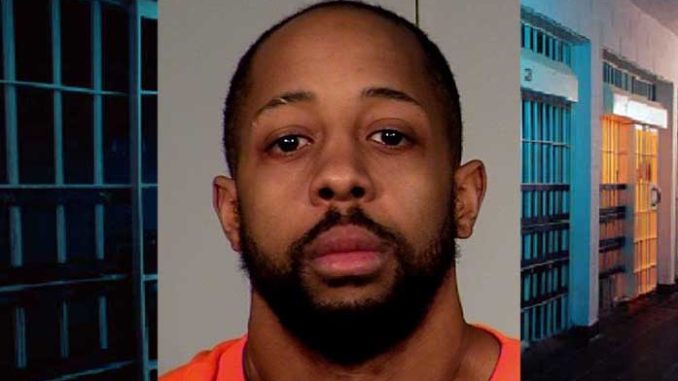
Steven J. Brydie is not entitled to a new trial for fatally shooting a friend in 2018, even though he pointed out several incidents in which a Gila County prosecutor made inappropriate remarks during the trial, including some in front of the jury, the Arizona Court of Appeals ruled last week.
“In every instance of prosecutorial error or misconduct that occurred in this case, the trial court sustained Brydie’s objection and struck the improper remarks from the record, and it appropriately instructed the jury to disregard stricken material,” according to a March 10 decision authored by Chief Judge Garye Vasquez, who noted Brydie failed to show the cumulative misconduct resulted in an unfair trial.
By all accounts, Brydie, now 29, did not intend to shoot Michael Whitis Jr. on July 28, 2018 when they and some friends went to the Shoofly Village Ruin near Payson. However, Brydie was prohibited from possessing a firearm and had a history of illegal drug use when one bullet hit and killed Whitis.
Brydie stood trial in Gila County Superior Court in September 2019 for second degree murder but the jury found him guilty of a lesser charge of negligent homicide. After sentencing he was appointed an appellate attorney who challenged several aspects of the jury trial, including the conduct of Bradley Soos, the prosecutor for the Gila County Attorney’s Office.
During closing arguments to the jury, Soos remarked on the fact a defense investigator had not visited the crime scene nor was he been called to testify at the trial by Michael Bernays, Brydie’s defense attorney. Soos also commented on a ruling by Judge Timothy Wright of the Gila County Superior Court which prohibited the prosecutor from calling the investigator as a state witness.
“Although attorneys are given wide latitude in their arguments to the jury, an attorney may not refer to evidence which is not in the record, nor may he ‘testify’ as to matters not in evidence,” the appellate decision notes. “As the state appropriately concedes, the prosecutor improperly referred to matters outside the evidence.”
The court of appeals also took issue with another comment by Soos, one which Vasquez noted “improperly impugned” the integrity of Bernays during closing arguments by questioning the defense attorney’s motives for a question he asked during a portion of jury selection called voir dire.
The purpose of voir dire is to allow the attorneys and the judge to ask prospective jurors about a variety of issues, such as their prior knowledge of the case, their experiences with the courts, and their comfort serving on a jury. One question Bernays asked was whether any prospective jurors had issues with the fact Brydie was an African American.
Bur during closing arguments, Soos suggested to the jury that what the defense attorney really meant was his client could not get a fair trial in Gila County.
“Remember when you were being selected, the (defense attorney) asked you whether you had any problem with the defendant being black. There was no purpose to that question either. The question was, essentially, are any of you racists,” Soos told the jurors.
The appellate decision noted Soos had no basis for the “false and inflammatory insinuation” that Brydie’s attorney did anything improper during voir dire. Instead, Vasquez wrote, Bernays put forth “proper questions to the jury about whether they could be fair and impartial” in deciding Brydie’s guilt.
At the end of its review, the court of appeals ruled Wright “appropriately instructed the jury that it should determine the facts only from the evidence, that evidence consisted only of witness testimony and exhibits, and that closing arguments were not evidence. We presume the jury followed its instructions and the improper remarks did not affect the verdict.”
Wright later imposed the longest possible sentence of 15 years with no possibility of early release, noting Brydie was on probation at the time of the Whitis’ death and was prohibited from possessing a firearm based on a prior felony conviction.
Brydie is set for release in July 2033 but that could change once he stands trial for several other felony charges related to his conduct in 2018, including his possession of a firearm. In the meantime, Brydie is currently housed at the Arizona State Prison Complex – Lewis in Buckeye where he is assigned porter duties.

